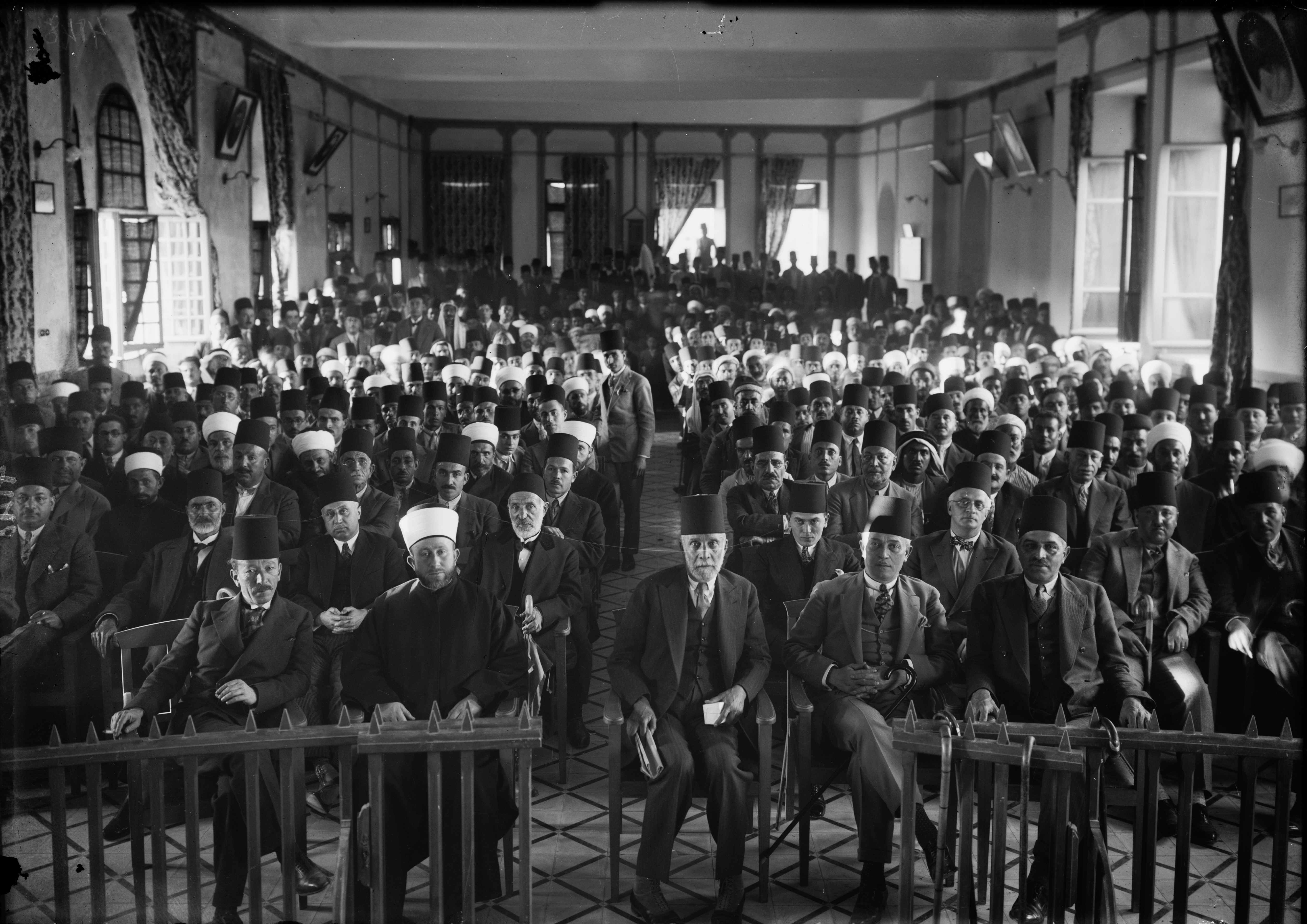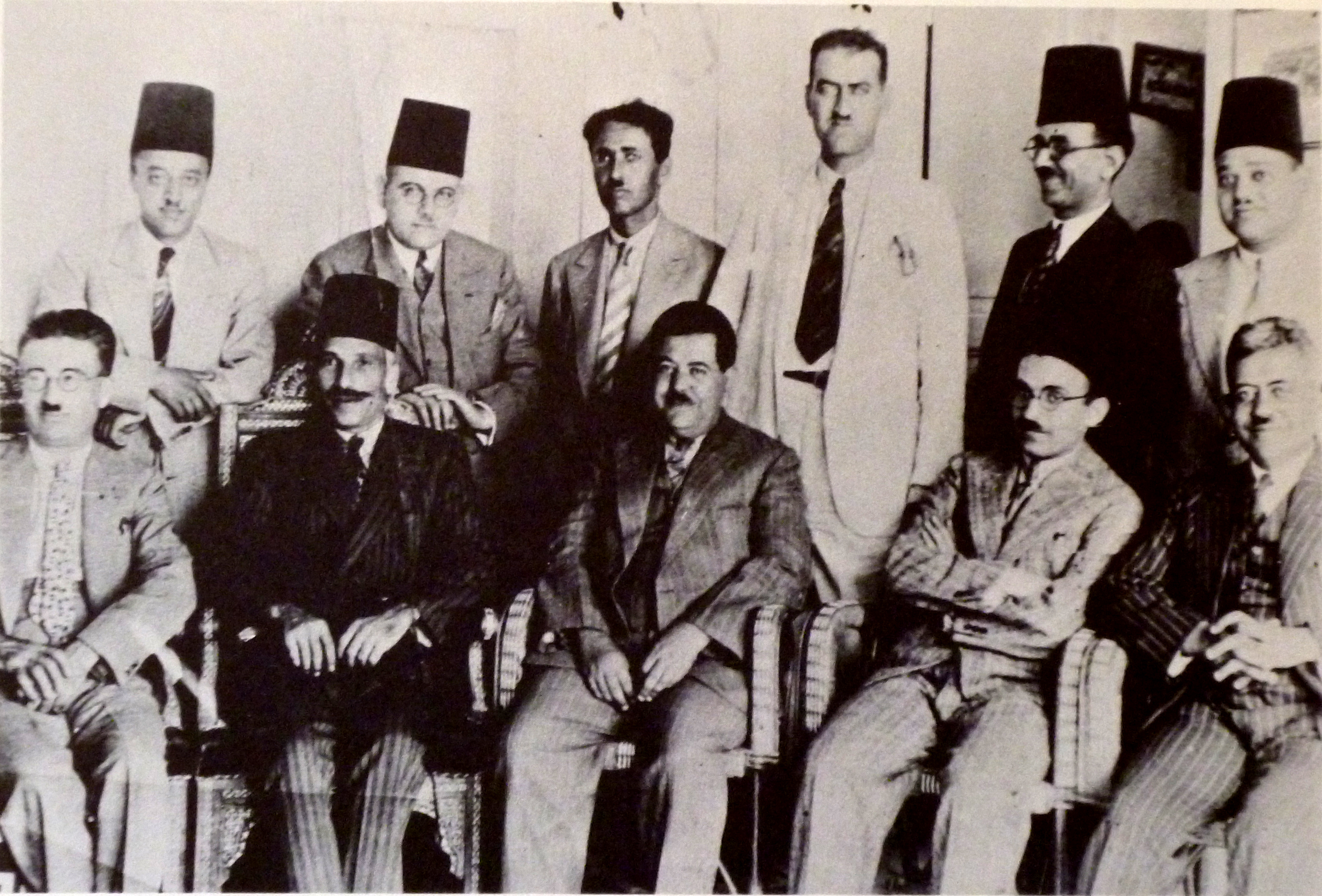|
Youth Congress Party
The Youth Congress Party was a Palestinian political party that was established by Yaqub al-Ghusayn. It was formed in 1932 in the British Mandate of Palestine and quickly grew to become the largest nationalist association of the early 1930s, counting several thousand members by mid-1934 in branches across the country. The party rejected British rule and was generally pro-Husayni. The party's membership came mainly from Jaffa and Ramleh.''A Survey''. p.950 See also * Independence Party (Mandatory Palestine) The Independence Party of Palestine (''Hizb al-Istiqlal'') was an Arab nationalist political party established on 13 August 1932 in Palestine during the British Mandate. The party was founded by Muhammad Izzat Darwaza, and the other founders of ... References *Levenberg, Haim (1993). ''Military Preparations of the Arab Community in Palestine: 1945-1948''. London: Routledge. *''A Survey of Palestine - prepared in December 1945 and January 1946 for the information of the ... [...More Info...] [...Related Items...] OR: [Wikipedia] [Google] [Baidu] |
Arab Nationalism
Arab nationalism () is a political ideology asserting that Arabs constitute a single nation. As a traditional nationalist ideology, it promotes Arab culture and civilization, celebrates Arab history, the Arabic language and Arabic literature. It often also calls for unification of Arab society.Requiem for Arab Nationalism by Adeed Dawisha, ''Middle East Quarterly'', Winter 2003 It bases itself on the premise that the people of the —from the to the |
Yaqub Al-Ghusayn
Yaqub al-Ghusayn (, ) (1899–1948) was a Palestinian landowner from Ramla and the founder of the Youth Congress Party. Early life and education He got his initial education at the Sultani School in Jerusalem from where he graduated in 1917. He later graduated in law from the University of Cambridge, UK. He worked as an inspector at a railway station until the British Mandate, before moving to the field of business and agriculture. Family and personal life He was married to Thuriya Nuseibeh, also a Palestinian noble, and they had 11 children; Talat, Khaled, Abdel-Kareem, Tawfiq, Aida, Khalida, Heya, Motia’a, Khadija, Nuzha and Fatoum. Political career Ghusayn was member of different youth societies in Palestine before he himself established the Muslim Youth Society in Ramleh in 1927. He was elected president of the first National Congress of Arab Youth, held in Jaffa in January 1932. He was a member and representative of his party in the Arab Higher Committee from its ... [...More Info...] [...Related Items...] OR: [Wikipedia] [Google] [Baidu] |
Mandatory Palestine
Mandatory Palestine was a British Empire, British geopolitical entity that existed between 1920 and 1948 in the Palestine (region), region of Palestine, and after 1922, under the terms of the League of Nations's Mandate for Palestine. After an Arab Revolt, Arab uprising against the Ottoman Empire during the First World War in 1916, British Empire, British Egyptian Expeditionary Force, forces drove Ottoman Empire, Ottoman forces out of the Levant. The United Kingdom had agreed in the McMahon–Hussein Correspondence that it would honour Arab independence in case of a revolt but, in the end, the United Kingdom and French Third Republic, France divided what had been Ottoman Syria under the Sykes–Picot Agreement—an act of betrayal in the eyes of the Arabs. Another issue was the Balfour Declaration of 1917, in which Britain promised its support for the establishment of a Homeland for the Jewish people, Jewish "national home" in Palestine. Mandatory Palestine was then establishe ... [...More Info...] [...Related Items...] OR: [Wikipedia] [Google] [Baidu] |
Husayni
Husayni ( also spelled Husseini) is the name of a prominent Palestinian Arab clan formerly based in Jerusalem, which claims descent from Husayn ibn Ali (the son of Ali). The Husaynis follow the Hanafi school of Sunni Islam, in contrast to the Shafi school followed by most of the Arab Muslim population of Palestine.The Rise and Fall of the Husainis Pappe, Ilan. Institute of Jerusalem Studies History [...More Info...] [...Related Items...] OR: [Wikipedia] [Google] [Baidu] |
Jaffa
Jaffa (, ; , ), also called Japho, Joppa or Joppe in English, is an ancient Levantine Sea, Levantine port city which is part of Tel Aviv, Tel Aviv-Yafo, Israel, located in its southern part. The city sits atop a naturally elevated outcrop on the Mediterranean coastline. Excavations at Jaffa indicate that the city was settled as early as the Bronze Age, Early Bronze Age. The city is referenced in several ancient Ancient Egypt, Egyptian and Neo-Assyrian Empire, Assyrian documents. Biblically, Jaffa is noted as one of the boundaries of the tribe of Dan and as a port through which Cedrus libani, Lebanese cedars were imported for the construction of the Temple in Jerusalem. Under Achaemenid Empire, Persian rule, Jaffa was given to the Phoenicians. The city features in the biblical story of Jonah and the Greek legend of Andromeda (mythology), Andromeda. Later, the city served as the major port of Hasmonean Judea. However, its importance declined during the Roman Empire, Roman perio ... [...More Info...] [...Related Items...] OR: [Wikipedia] [Google] [Baidu] |
Ramleh
Ramla (), also known as Ramle (, ), is a city in the Central District of Israel. Ramle is one of Israel's mixed cities, with significant numbers of both Jews and Arabs. The city was founded in the early 8th century CE by the Umayyad caliph Sulayman ibn Abd al-Malik as the capital of Jund Filastin, the district he governed in Bilad al-Sham before becoming caliph in 715. The city's strategic and economic value derived from its location at the intersection of the ''Via Maris'', connecting Cairo with Damascus, and the road connecting the Mediterranean port of Jaffa with Jerusalem. It rapidly overshadowed the adjacent city of Lydda, whose inhabitants were relocated to the new city. Not long after its establishment, Ramla developed as the commercial centre of Palestine, serving as a hub for pottery, dyeing, weaving, and olive oil, and as the home of numerous Muslim scholars. Its prosperity was lauded by geographers in the 10th–11th centuries, when the city was ruled by the Fatimids ... [...More Info...] [...Related Items...] OR: [Wikipedia] [Google] [Baidu] |
Independence Party (Mandatory Palestine)
The Independence Party of Palestine (''Hizb al-Istiqlal'') was an Arab nationalist political party established on 13 August 1932 in Palestine during the British Mandate. The party was founded by Muhammad Izzat Darwaza, and the other founders of the party were Fahmi al-Abboushi, Mu'in al-Madi, Akram Zu'aytir, ‘Ajaj Nuwayhid, Rashid al-Haj Ibrahim, Subhi al-Khadra, and Salim Salamah. The party did not achieve a large membership but Awni Abd al-Hadi, through his role as private secretary to Amir Feisal in Damascus between 1918-1920, had good relations with many senior leaders across the Arab world. Its origins lay in the Istiqlal movement associated with the short-lived Sharifian government in Damascus. The party's creation was spurred by the al-Husayni– Nashashibi rivalry, which had almost paralyzed the Palestinian national movement. Its founders, most of whom hailed from the Nablus area, called for the adoption of new methods of political action, including noncooperat ... [...More Info...] [...Related Items...] OR: [Wikipedia] [Google] [Baidu] |
1932 Establishments In Mandatory Palestine
Year 193 ( CXCIII) was a common year starting on Monday of the Julian calendar. At the time, it was known as the Year of the Consulship of Sosius and Ericius (or, less frequently, year 946 ''Ab urbe condita''). The denomination 193 for this year has been used since the early medieval period, when the Anno Domini calendar era became the prevalent method in Europe for naming years. Events By place Roman Empire * January 1 – Year of the Five Emperors: The Roman Senate chooses Publius Helvius Pertinax, against his will, to succeed the late Commodus as Emperor. Pertinax is forced to reorganize the handling of finances, which were wrecked under Commodus, to reestablish discipline in the Roman army, and to suspend the food programs established by Trajan, provoking the ire of the Praetorian Guard. * March 28 – Pertinax is assassinated by members of the Praetorian Guard, who storm the imperial palace. The Empire is auctioned off; Marcus Didius Julianus the highest ... [...More Info...] [...Related Items...] OR: [Wikipedia] [Google] [Baidu] |
Arab Nationalism In Mandatory Palestine
Arabs (, , ; , , ) are an ethnic group mainly inhabiting the Arab world in West Asia and North Africa. A significant Arab diaspora is present in various parts of the world. Arabs have been in the Fertile Crescent for thousands of years. In the 9th century BCE, the Assyrians made written references to Arabs as inhabitants of the Levant, Mesopotamia, and Arabia. Throughout the Ancient Near East, Arabs established influential civilizations starting from 3000 BCE onwards, such as Dilmun, Gerrha, and Magan, playing a vital role in trade between Mesopotamia, and the Mediterranean. Other prominent tribes include Midian, ʿĀd, and Thamud mentioned in the Bible and Quran. Later, in 900 BCE, the Qedarites enjoyed close relations with the nearby Canaan#Canaanites, Canaanite and Aramaeans, Aramaean states, and their territory extended from Lower Egypt to the Southern Levant. From 1200 BCE to 110 BCE, powerful kingdoms emerged such as Sabaeans, Saba, Lihyan, Minaeans, Minaean, Qata ... [...More Info...] [...Related Items...] OR: [Wikipedia] [Google] [Baidu] |
Defunct Palestinian Political Parties
{{Disambiguation ...
Defunct may refer to: * ''Defunct'' (video game), 2014 * Zombie process or defunct process, in Unix-like operating systems See also * * :Former entities * End-of-life product * Obsolescence Obsolescence is the process of becoming antiquated, out of date, old-fashioned, no longer in general use, or no longer useful, or the condition of being in such a state. When used in a biological sense, it means imperfect or rudimentary when comp ... [...More Info...] [...Related Items...] OR: [Wikipedia] [Google] [Baidu] |
History Of Palestine (region)
The region of Palestine is part of the wider region of the Levant, which represents the land bridge between Africa and Eurasia.Steiner & Killebrew, p9: "The general limits ..., as defined here, begin at the Plain of 'Amuq in the north and extend south until the Wâdī al-Arish, along the northern coast of Sinai. ... The western coastline and the eastern deserts set the boundaries for the Levant ... The Euphrates and the area around Jebel el-Bishrī mark the eastern boundary of the northern Levant, as does the Syrian Desert beyond the Anti-Lebanon range's eastern hinterland and Mount Hermon. This boundary continues south in the form of the highlands and eastern desert regions of Transjordan." The areas of the Levant traditionally serve as the "crossroads of Western Asia, the Eastern Mediterranean, and Northeast Africa", [...More Info...] [...Related Items...] OR: [Wikipedia] [Google] [Baidu] |








